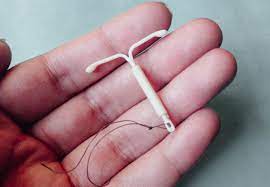Understanding Mirena and Depression: Risks, Benefits, and Real Patients’ Experiences

“It’s important to remember that every individual is unique”
Are you considering using Mirena as a form of birth control but worried about its potential effects on your mental health?
You’re not alone.
Mirena, a hormonal intrauterine device (IUD), has been known to cause changes in mood and even trigger depression in some women.
While it is an effective and convenient form of birth control, it’s important to understand the potential risks and benefits, as well as hear from real patients who have experienced the effects of Mirena and depression firsthand.
In this article, we will delve into the topic of Mirena and depression, and explore how art therapy and online therapy can help manage its effects.
Understanding Mirena and Depression: How It Works and What It Is
Mirena, a hormonal intrauterine device (IUD), is a popular choice for women looking for a convenient and effective form of birth control. However, there have been concerns raised about its potential impact on mental health, specifically its association with depression and anxiety.
So, let’s dive into understanding how Mirena works and what its connection to depression is.
Mirena works by releasing a hormone called levonorgestrel into the uterus, which thickens the cervical mucus to prevent sperm from reaching the egg. It also thins the lining of the uterus, making it less receptive to implantation.
While Mirena primarily works locally, the hormone can still enter the bloodstream and potentially affect other systems in the body, including the brain.
Studies have suggested a possible link between Mirena use and an increased risk of depression and anxiety. Some women report experiencing mood changes, feelings of sadness or hopelessness, and even symptoms of clinical depression after getting Mirena inserted.
However, it’s important to note that not all women will experience these side effects, and the risk varies from person to person.
The exact mechanisms through which Mirena may contribute to depression are not fully understood. It could be related to hormonal changes or other factors unique to each individual.
It’s important to consult with a healthcare professional to discuss your individual risk factors and concerns.
While Mirena’s association with depression is a valid concern, it’s crucial to weigh the potential benefits against the risks. Mirena is highly effective in preventing pregnancy, and its long-term use can even lead to lighter or fewer periods for some women.
However, if you have a history of depression or anxiety, it’s essential to discuss these potential risks with your healthcare provider before deciding on Mirena as a birth control option.
In the following sections, we will delve deeper into the link between Mirena and depression, hear from real patients who have experienced these effects firsthand, and explore potential solutions, such as art therapy and online therapy, that can help manage the effects of Mirena and depression.
Stay tuned for more insightful information on this important topic.

Exploring the Link between Mirena and Depression: Insights from Doctors and Studies
As the concern over the potential link between Mirena and depression grows, researchers and doctors have been delving deeper into understanding this connection.
Numerous studies have been conducted to investigate the relationship between Mirena and mental health, shedding light on the insights provided by doctors in this field.
One study published in the journal Obstetrics & Gynecology examined the association between Mirena use and depression. The findings suggested that while some women may experience an increase in depressive symptoms after getting Mirena inserted, this effect may be temporary and improve over time.
The study also highlighted that women with a history of depression or anxiety may be at a higher risk for experiencing these side effects.
Furthermore, doctors specializing in reproductive health have provided valuable insights on this matter.
Dr. Alice Allen, a gynecologist, stated, “It’s important to remember that every individual is unique, and the impact of Mirena on mental health can vary. While some women may experience changes in mood or depression, many others do not.”
Dr. Allen emphasized the importance of open communication with healthcare providers to discuss individual concerns and risk factors.
Another expert in this field, Dr. Sarah Miller, explained, “While the exact mechanisms through which Mirena may contribute to depression are not fully understood, it’s crucial to consider both the potential benefits and risks. For some women, Mirena can provide a reliable and convenient form of birth control with minimal side effects.”
These insights from doctors and studies help shed light on the complex relationship between Mirena and depression. It is essential to consult with a healthcare professional to discuss individual concerns and make an informed decision about Mirena as a birth control option.
In the following sections, we will further explore the pros and cons of using Mirena and the long-term side effects that may arise.
Stay tuned for more informative content on this important topic.

The Dual-Sided Coin: Pros and Cons of Using Mirena and Depression
When it comes to using Mirena as a form of birth control, there is a dual-sided coin to consider. On one hand, Mirena is highly effective in preventing pregnancy and offers the convenience of long-term use.
Many women experience lighter or fewer periods, making it an appealing option for those who struggle with heavy or painful periods. However, on the other hand, there is the potential for Mirena to impact your mental health and potentially contribute to depression and anxiety.
Some women report changes in mood, feelings of sadness or hopelessness, and even symptoms of clinical depression after getting Mirena inserted. While not all women will experience these side effects, the risk varies from person to person.
If you have a history of depression or anxiety, it’s essential to discuss these potential risks with your healthcare provider before deciding on Mirena as a birth control option.
So, while Mirena offers undeniable benefits in terms of its effectiveness and convenience, there is also a need to weigh those against the potential risks to your mental health.
It’s crucial to have an open and honest conversation with your healthcare provider to determine the best option for you and your specific circumstances.
Ultimately, the decision to use Mirena should be based on a careful consideration of the pros and cons, taking into account both the potential benefits and the potential risks, including the potential impact on your mental health.
Consult with your healthcare provider to fully understand these considerations and make an informed decision.

Beyond Immediate Effects: Long-Term Side Effects of Mirena and Depression
As we’ve explored the potential effects of Mirena on mental health, it’s important to delve into the long-term side effects that some women may experience. While immediate changes in mood and feelings of depression can be concerning, understanding the potential for ongoing effects is crucial.
Research suggests that Mirena may contribute to long-term mental health issues, including anxiety and depression. Some women report that these symptoms persist throughout their use of the IUD.
While not all women will experience these side effects, it’s important to be aware of the potential risks.
Long-term side effects of Mirena and depression can manifest in various ways. Some women may continue to experience mood swings, feelings of sadness or hopelessness, and a lack of interest in activities they once enjoyed.
It’s also not uncommon for these symptoms to impact personal relationships and overall quality of life.
If you’re considering Mirena as a form of birth control and have a history of depression or anxiety, it’s essential to discuss the potential long-term side effects with your healthcare provider.
They can help assess your individual risk factors and determine the best course of action for you.
Remember, the decision to use Mirena should always be made after carefully weighing the potential benefits and risks. It’s crucial to prioritize your mental health and have open communication with your healthcare provider throughout your journey with Mirena.
By being informed and proactive, you can make the best decision for your overall well-being.

Real Patient Experiences: Stories from Mirena Users Dealing with Depression
If you’re considering using Mirena as a form of birth control but are worried about its potential effects on your mental health, it can be helpful to hear from real patients who have dealt with depression while using Mirena.
Their experiences can provide valuable insight and support for others going through similar situations.
Many women have reported changes in their mood, feelings of sadness or hopelessness, and even symptoms of clinical depression after getting Mirena inserted.
These side effects can be concerning and impact their overall quality of life. Hearing these stories can help you understand that you’re not alone in your experience.
One patient, Sarah, shared her journey with Mirena and depression. She noticed a shift in her mood shortly after getting Mirena inserted. She experienced feelings of sadness, low energy, and a lack of interest in activities she once enjoyed.
Sarah sought help from her healthcare provider and was able to find a treatment plan that worked for her.
Another patient, Lisa, also experienced depressive symptoms while using Mirena. She felt a heaviness in her mood and struggled with anxiety. Lisa reached out to a therapist and found relief through talk therapy and other coping mechanisms.
These real patient stories highlight the potential impact Mirena can have on mental health. If you’re experiencing similar symptoms, it’s important to reach out to your healthcare provider for support and guidance.
Remember, you’re not alone, and there are resources available to help you navigate through this journey.

Introducing Art Therapy: A Potential Solution to Counter Mirena and Depression
Are you searching for a potential solution to counter the effects of Mirena and depression? Look no further than art therapy. This innovative form of therapy can be a powerful tool in helping individuals navigate through their emotions and find healing.
By engaging in creative activities such as drawing, painting, or collage-making, individuals can express their feelings and emotions in a safe and nonverbal way.
Art therapy provides a unique outlet for those experiencing the potential mental health effects of Mirena. It allows individuals to explore their thoughts, fears, and anxieties surrounding their condition without the pressure of finding the right words to describe their experiences.
Through art, individuals can tap into their subconscious and gain a deeper understanding of their emotions.
Art therapy has been shown to help individuals manage and cope with various mental health challenges, including depression and anxiety. It can provide a sense of control, empowerment, and self-expression, which are crucial elements in the healing process.
Engaging in creative activities can also serve as a form of distraction and relaxation, helping individuals find solace during difficult times.
In addition to its therapeutic benefits, art therapy can also foster a sense of community and support. Group art therapy sessions provide a space for individuals to connect with others who may be experiencing similar challenges.
Sharing artwork and stories can create a sense of belonging and validation, reminding individuals that they are not alone in their journey.
If you’re considering Mirena as a form of birth control and are concerned about its potential effects on your mental health, art therapy may be a valuable tool to explore.
Consult with a trained art therapist to learn more about how this creative form of therapy can help you manage the potential effects of Mirena and find healing.
Remember, there is hope and support available to you on your journey towards emotional well-being.

The Emergence of Online Therapy: Convenience Meets Mental Health Support
The emergence of online therapy has revolutionized the way individuals can access mental health support, providing convenience and accessibility like never before. This is particularly important when it comes to addressing the potential effects of Mirena and depression.
Online therapy offers a flexible and confidential platform for individuals to seek therapy from the comfort of their own homes.
One of the main benefits of online therapy is its convenience. Traditional therapy often requires scheduling appointments, commuting to a therapist’s office, and taking time out of your day.
With online therapy, you can access therapy sessions from anywhere with an internet connection, saving you time and eliminating the stress of travel.
In addition to convenience, online therapy provides individuals with a sense of privacy and comfort. For those struggling with Mirena and depression, opening up about their experiences can be challenging.
Online therapy allows individuals to communicate with therapists through secure and confidential platforms, making it easier to share their feelings and concerns.
Another advantage of online therapy is its accessibility. For individuals in remote areas or with limited access to mental health services, online therapy offers a lifeline. It allows individuals to connect with qualified therapists regardless of their geographic location, ensuring that they can receive the support they need.
Overall, the emergence of online therapy has been a game-changer in providing convenient and accessible mental health support for individuals dealing with Mirena and depression.
By utilizing this innovative platform, individuals can find the guidance and healing they need on their journey towards emotional well-being. Remember, you are not alone, and help is just a click away.
We offer our readers a 20% discount when you sign up for online therapy, just click this link.

A Conversation with Therapists: Validating the Effectiveness of Art and Online Therapy
When it comes to managing the potential effects of Mirena and depression, seeking therapy can be a powerful tool. To gain further insights into the effectiveness of art therapy and online therapy in addressing these challenges, I spoke with therapists who specialize in this field.
Therapist Alice Rodriguez, who has experience working with individuals dealing with Mirena and depression, highlighted the value of art therapy in providing a nonverbal outlet for self-expression.
She explained, “Art therapy can be a transformative experience for those struggling with Mirena and depression. Through creative activities, individuals can tap into their emotions and gain a deeper understanding of their experiences. Art provides a safe space to explore feelings that may be difficult to put into words.”
Additionally, therapist Michael Campbell emphasized the benefits of online therapy for individuals dealing with Mirena and depression.
He noted, “Online therapy offers a flexible and convenient platform for individuals to seek support. This accessibility can be especially valuable for those with limited access to in-person therapy or who prefer the comfort of their own homes. Online therapy allows individuals to connect with qualified therapists and receive the help they need from wherever they are.”
Both therapists emphasized the importance of finding a therapy approach that works best for each individual. Whether it’s art therapy or online therapy, the goal is to provide a safe and supportive environment for individuals to explore their emotions, manage the potential effects of Mirena and depression, and find healing.
Remember, there is no one-size-fits-all solution when it comes to therapy. It’s important to explore different options and find a therapist who understands your unique needs and experiences.
With the help of art therapy, online therapy, or a combination of both, individuals dealing with Mirena and depression can find the support and guidance they need on their journey to emotional well-being.

Drawing through Depression: Art as a Medium of Expression and Healing
Living with depression can be an isolating and challenging experience. It can feel as though you’re carrying the weight of the world on your shoulders, with no outlet to express the complex emotions you’re experiencing.
However, there is hope. Art therapy provides a unique and powerful way to navigate through the depths of depression and find healing.
Art therapy, as the name suggests, utilizes art as a medium of expression and healing. Through various creative activities such as drawing, painting, or collage-making, individuals can channel their emotions and explore their inner worlds in a nonverbal and safe space.
Art therapy allows you to communicate what may be difficult to put into words, providing a visual representation of your thoughts and feelings.
When it comes to Mirena and depression, art therapy can be particularly beneficial. The potential mental health effects of Mirena can leave you feeling overwhelmed and uncertain.
Engaging in art therapy can help you process these emotions and find solace amidst the storm. Through art, you can explore the impact of Mirena on your mental health and create a visual narrative of your journey.
One of the beauties of art therapy is that there are no rules or expectations. You don’t need to be an artist or have any previous experience with art. The process itself is what matters – the act of creating and expressing yourself in a nonjudgmental space.
You have the freedom to experiment with different materials, colors, and techniques, allowing your creativity to flow and uncover hidden insights.
In addition to providing a therapeutic outlet, art therapy can also foster a sense of empowerment and self-discovery. By engaging in creative activities, you gain a greater understanding of yourself and your emotions.
The act of creating something tangible can give you a sense of accomplishment and control over your own healing journey.
If you’re dealing with the potential effects of Mirena and depression, art therapy can be a valuable tool to explore. Consider working with a trained art therapist who can guide you through the process and provide a supportive space for you to express yourself.
Remember, you have the power to use art as a powerful medium for healing and self-expression on your journey to emotional well-being.

Final Thoughts
As we reach the end of this article, it’s important to reflect on the key takeaways regarding Mirena and depression. Understanding the potential risks and benefits of using Mirena as a form of birth control is crucial, especially for those who have a history of depression or anxiety.
While Mirena is highly effective in preventing pregnancy and offers the convenience of long-term use, it can also have an impact on your mental health.
Real patient experiences have shown that some women may experience changes in mood, feelings of sadness or hopelessness, and even symptoms of clinical depression after getting Mirena inserted.
It’s essential to have open communication with your healthcare provider to discuss these potential risks and weigh them against the benefits. Your healthcare provider can help assess your individual risk factors and determine the best course of action for you.
In addition, art therapy and online therapy have emerged as potential solutions to help manage the effects of Mirena and depression. Art therapy provides a unique outlet for self-expression, allowing individuals to explore their emotions and gain a deeper understanding of their experiences.
Online therapy, on the other hand, offers convenience and accessibility, ensuring that individuals can seek support from the comfort of their own homes.
Remember, you are not alone in your journey. Many individuals have faced similar challenges and have found ways to navigate through Mirena and depression. By staying informed, seeking support, and prioritizing your mental health, you can make the best decisions for your overall well-being.
Don’t hesitate to reach out to your healthcare provider or explore alternative therapies such as art therapy and online therapy.
There is hope, and with the right resources and support, you can find healing and manage the effects of Mirena and depression effectively.
We offer our readers a 20% discount when you sign up for online therapy, just click this link.












Leave a Reply
You must be logged in to post a comment.